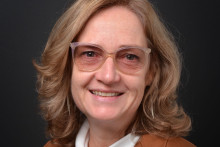The CPO advises educational programs on the recognition of 'special circumstances' among students. If there are any, the student can request a postponement of binding study advice or financial benefits. The percentage of students in the entire UT population who approached the CPO is almost the same as the 2017/18 academic year. At that time, CPO chairman Ton Mouthaan sounded the alarm bell. 'The UT must prepare the non-European students much better and guide them individually.' The recommendations of that academic year remain valid, the committee writes.
Nasty constructions
New in the report about the last academic year is the emphasis on financial problems. Current CPO chairperson Ariana Need says that foreign students often depend on scholarships and sponsors, which is putting pressure on them. 'They are sometimes in nasty constructions. If the study does not go well, they have to pay everything back. The amounts involved are huge because money in their home countries is worth much more. We believe that scholarship providers should set reasonable conditions for the student.'
The committee also emphasizes the problems with the accommodation of international students. 'We hear stories from students who have a hard time finding a room,' says Need. 'If they make use of the guaranteed accommodation, they have to find a room themselves after a year. That does not always go well. Because of co-optation, they sometimes do not enter the Dutch groups. They experience that stress at the end of the academic year when their lease term ends. We recommend that accommodation is made available before the start of the academic year and for longer than a year.'
'Slowly getting better'
In the last three years, the CPO reported that there are problems, especially with the non-European Bachelor's students. Ariana Need thinks that things are 'slowly getting better'. 'Last year, a third of the non-European bachelors approached the CPO for support. There is a lot of attention for the problems. For example, the UT is working hard to shorten the waiting times at psychologists, and study advisors keep an eye on this group.'






